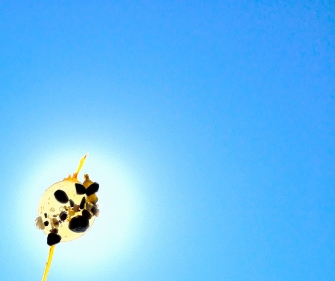Remarks from the closing plenary, “Revolutionary Organizing Across Time and Space,” at the INCITE! Color of Violence 4 Conference, March 26-29, 2015, Chicago, Illinois.
 I am engaged in the work of building transformative justice responses to child sexual abuse with the Bay Area Transformative Justice Collective (The BATJC). We are a local collective and we are not a nonprofit because we believe that it will not allow us to take the kinds of political risks necessary for transformative justice and community accountability (TJ/CA). No one is paid and we work to get everything for as free as we can. We are not “volunteers,” but rather we understand this as part of our life’s work.
I am engaged in the work of building transformative justice responses to child sexual abuse with the Bay Area Transformative Justice Collective (The BATJC). We are a local collective and we are not a nonprofit because we believe that it will not allow us to take the kinds of political risks necessary for transformative justice and community accountability (TJ/CA). No one is paid and we work to get everything for as free as we can. We are not “volunteers,” but rather we understand this as part of our life’s work.
I am interested in our internal work. The work with each other inside of our movements, inside of our organizations and groups, inside of our relationships. The way that our analysis by itself is not enough, because what good is it if we can run great campaigns if we all end up hating each other in the process? If it means that leaders who used to be friends now don’t work together to the detriment of our movements? What good is our amazing analysis of TJ/CA if our intervention to violence tears apart our community, and then we need an accountability process for our accountability process?
Because it is easy to hate a white police officer, but what do we do when the violence and abuse is coming from people who look like us? People we rely on? People we love? What do we do when the violence is happening inside of our homes, our relationships, our communities? Inside of our political groups, collectives, organizations and movements?
Our inability to respond well to intimate violence and abuse continues to undermine our other political work. How is it that we still can’t respond well to one of the most common experiences on the planet that our peoples face?
This is the moment we are in.
Because it is clear to me that we don’t lack political analysis or people power or deeply compelling work. But I am interested in what happens next: the way we come together and then break apart. The way we can mobilize people against the state, but when it comes to intimate violence within our own communities, we can’t ever seem to find enough people; or they are there in the beginning, but are nowhere to be found in the following months; or we end up replicating our own versions of criminalization, exile and “other.” It is not enough to say, “community-based responses to violence” if we simply just end up replicating the state.
I am interested in what we are going to do when we have a world without prisons—that’s right, I said, “WHEN.” Because it is going to happen: we will win. I have no doubt in our ability to shut down the prison industrial complex forever and throw away the keys. It is going to happen.
But then what? What will be our alternatives for dealing with violence, harm and abuse?
We need to build alternatives. Yes, we need resistance—it is crucial. Our communities are being attacked and erased at every turn. Yes, we need to resist against the systems that are targeting us—most definitely. AND (BOTH/AND) we also need alternatives. Because even if we abolish prisons tomorrow, we will still need a way to deal with conflict and harm and violence. Even if violence and abuse ended tomorrow, we will still need a way to deal with the impacts of trauma (individual and collective trauma, immediate and generational trauma). Generational trauma will be with us for some time.
And of course these are not mutually exclusive to each other. We can resist in ways that build a new world. And I am not saying we need to do everything all at once all the time. On the contrary, I am saying the exact opposite. That instead, we get clear about our different roles and work in service of a shared vision, and that we are strategic about those roles. That those of us who are working to resist and hold back the tide for one more day, one more night, do so for those of us who are working to build alternatives. And that those of us who are working to build alternatives stay grounded in the current urgency and reality of intimate and state violence. That we work in concert with each other so that we are not responding to immediate needs in ways that undermine our long term visions (and in ways that perpetuate the very systems we are fighting); AND that we are also not building utopic politically pure castles in the sky that have no relevance to our current conditions. We need both and we need them together and we need them to be in service of one another.
Because we are good at resisting. We are good at fighting for the world we don’t want. We are good at analysis and analyzing things up and down (and sometimes into oblivion). We are skilled at naming what we don’t want. I think we are less skilled at naming what we do want; our visions for liberation. And not just vague things like, “ending white supremacy and heterosexism,” but how are all the children going to get fed? Who will clean the toilets? Who will take out the trash? Who will cook the food?
We know that most people who experience violence—any type of violence—turn to their intimate networks first: their best friend, their family, their partners, a neighbor. Most people don’t call the cops or an anonymous hotline or even seek social services. They turn to their intimate networks. So if we know this, then that is where we need to build.
I hope we are in a moment where we are realizing that we need to put half if not more of our time and resources into building alternatives and building in our intimate networks. BOTH a reclaiming of what has been stolen from us, as well as a reimagining of what can be. As well as a revealing of what we are already doing and the strategies of resilience that are already embedded in our lives. For example, I think about queer chosen family. No one took a class or got a grant to learn how to do that. We did it to save our lives and in the process, created a new world for each other.
We are at a moment where we have almost two decades of shared language and thinking around TJ/CA—obviously the work has been going on forever, just because you name something doesn’t mean you invented it—but in terms of a shared language and political framework, we have had tremendous contributions from so many great people and groups. We are in a moment where TJ/CA is gaining more and more visibility and where we are able to share examples of our responses to violence like never before. I feel incredibly lucky to be alive in this moment doing TJ/CA work and I extend daily gratitude to the folks who have come before me in this work as well as the brave and dear revolutionaries who I have the honor of working with.
We are in a moment where we are building off of this work knowing that practice yields the sharpest analysis.
How are we building the world we long for in our day-to-day? After the protests, after the conference, after the event, outside of the meetings? During the unsexy times, in our most mundane moments?
This is not about perfection, but practice. Falling down and getting back up. Spectacular failures and learning how we can be and do better. Resilience in the face of fear; Humility in the face of ego; Faith in the face of hopelessness. This is about understanding organizing as a spiritual practice that is just as much about our souls as it is about our goals.
Sometimes I think it is strange to speak about this work from a microphone because so much of the work I am engaged in is quiet work, tender work. It is witnessing people in their most vulnerable moments around their histories of child sexual abuse, the times when they don’t want to be seen. This work is about nuance, complexity and contradiction, not sound bytes and drawing lines in the sand. It is messy and sticky work that reminds me every day that notions of “good” and “bad” people are fantasies that simply serve to make us feel more comfortable, but ultimately don’t serve to make us more liberated. I don’t believe in “good” and “bad” people, I believe that given the right conditions, any of us can be an asshole; any of us can abuse power.
How do we leave a legacy worth fighting for? How do we learn to invest in each other as our greatest resource? Because we will need each other to build the kind of world we want; liberation is a collective practice. How can we cultivate a sense of shared commitment to each other and understand this as part of our organizing? How do we cultivate the kind of commitment to each other that can withstand failures, heartbreak, disappointment, gossip, mistakes and conflict?
The kind of commitment to each other and love for one another that allows us to continue to leap together, knowing that we will fall and mess up and make mistakes and get bruised. Knowing that we will have to brush ourselves off and climb back up the mountain to do it all over again tomorrow. How do we cultivate that kind of commitment? One where we still choose to leap. Together.
Thank you.






